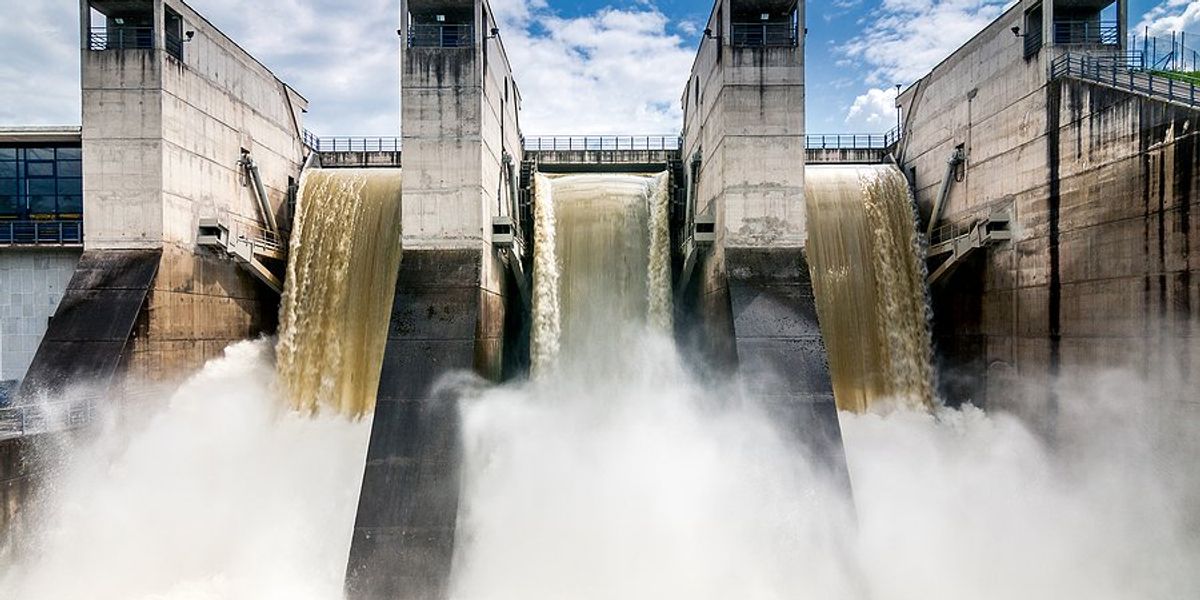hurricanes
Louisiana town faces climate crisis as hurricanes intensify
After decades of destructive storms, Lake Charles is grappling with the climate realities tied to its oil and gas-driven economy as its most iconic building, the Capital One Tower, was recently demolished.
In short:
- The Capital One Tower in Lake Charles, symbolizing the city's energy industry, was destroyed after years of storm damage.
- Hurricane Laura in 2020 caused severe damage, accelerating climate migration as residents moved away from the hurricane-prone region.
- As the city braces for future storms, residents increasingly see climate change as a driving force behind their economic and physical challenges.
Key quote:
“If I could go back in time and have Hurricane Laura never hit Lake Charles, I would do that. However, we are living in the world we are living in today.”
— Nic Hunter, mayor of Lake Charles
Why this matters:
Lake Charles shows how climate change is reshaping cities dependent on fossil fuels. As hurricanes intensify, other areas may face similar economic and environmental crises, forcing difficult choices on rebuilding and relocation.
Read more: TV News plays catch-up on the climate-hurricane link.
Houston faces growing threats from hurricanes and heat waves, experts warn
As climate change drives more severe weather, Houston remains unprepared for the deadly combination of power outages and extreme heat following hurricanes.
By Niko Kommenda, Shannon Osaka and Simon Ducroquet report for The Washington Post.
In short:
- Tropical Storm Beryl left two-thirds of Houston homes without power, with some outages lasting over a week, compounding the heat-related risks.
- Experts predict future blackouts and heat waves will claim more lives as cities like Houston have aging power grids, vulnerable infrastructure and little preparation.
- Hospitals and critical services were overwhelmed as residents, especially those dependent on electricity for medical devices, struggled to survive.
Key quote:
“I think it’s an absolute certainty that we will have an extreme heat wave and an extended blackout in the United States.”
— Brian Stone, professor and director of the Urban Climate Lab at the Georgia Institute of Technology
Why this matters:
Houston’s vulnerability to hurricanes and heat waves is worsened by its aging infrastructure. As climate change intensifies, prolonged power outages during heat waves could turn deadly, with cities needing better preparation to protect their populations.
Related:
Hurricanes can triple the amount of toxic contamination released into nearby communities
A new study in Environmental Science and Technology found that petrochemical manufacturers and refineries in Texas released higher amounts of toxic contamination during hurricanes.
In short:
- Compared to periods of normal weather, Hurricane Rita (2005) resulted in twice as many contamination releases, while Hurricanes Ike (2008) and Harvey (2017) caused releases to triple.
- Communities with a higher percentage of renters, higher poverty rates, and more Hispanic residents were more likely to experience an increase in contamination.
- Petrochemical refineries were responsible for the highest amount of contamination released during hurricanes.
Key quote:
“Low-income communities and people of color are disproportionately impacted by hurricanes and floods, leading to concerns that climate change will further exacerbate existing environmental health disparities.”
Why this matters:
As climate change continues to alter global weather patterns, extreme weather events such as hurricanes are becoming more common and more severe. With hazardous petrochemical sites disproportionately located within low-income communities of color, this study highlights how extreme weather can have significant environmental justice implications, as well as the need for better protections for fenceline communities.
Related EHN coverage:
- Oil and gas production responsible for $77 billion in annual US health damages: Study
- Air pollution linked to over 700 health conditions
More resources: Environmental Health News reporter Cami Ferrell covers the petrochemical industry in Houston. See her most recent reporting, ExxonMobil, LyondellBassel and Chevron among Houston’s top polluters: Report (leer este reportaje en español) and WATCH: Enduring the “endless” expansion of the nation’s petrochemical corridor (en español).
Follow Cami’s reporting via Instagram @ehnewsroom and TikTok @CamiReports.
Berberian, Alique et al. for Environmental Science and Technology. July 30, 2024
Disaster preparedness starts with facing reality
Americans need to acknowledge the increasing risk of climate disasters and take proactive measures to prepare for them.
In short:
- Extreme weather events like tornadoes, hurricanes and wildfires are becoming more frequent and severe due to climate change, posing significant risks to communities across the United States.
- While infrastructure and forecasting have improved, many people still underestimate their vulnerability and fail to prepare adequately, risking their safety during disasters.
- Establishing a "culture of preparedness" that involves education and coordinated disaster response plans can help reduce the impact of these climate-related events.
Key quote:
“If we leave people behind, it’s a failure.”
— Abdul-Akeem Sadiq, professor of public policy at the University of Central Florida.
Why this matters:
With climate change intensifying natural disasters, the number of affected individuals will likely increase. Effective preparedness and response strategies can save lives, prevent property damage and enhance community resilience.
Hurricanes are becoming harder to predict and evacuate for
Hurricane Beryl’s rapid intensification and early arrival highlight the challenges coastal residents face in deciding whether to evacuate or shelter in place.
In short:
- Hurricane Beryl intensified twice by over 35mph within 24 hours, becoming the first category 5 storm early in the season.
- Emergency managers are hesitant to call for mandatory evacuations due to the time required and past evacuation failures.
- Heat-related deaths and power outages during hurricanes are a growing concern, prompting new community-led initiatives for solar power support.
Key quote:
“If you don’t evacuate, you could be without power. If you do evacuate, you could end up running out of gas on the side of the road with thousands of other people.”
— Jason Sippel, meteorologist with the National Oceanic and Atmospheric Administration’s hurricane research division
Why this matters:
Hurricanes are becoming more intense and unpredictable due to climate change. Better forecasting and new community resilience projects are critical to protect vulnerable populations during these increasingly severe storms.
Rebuilding coastal communities post-hurricanes is complex and transformative
As coastal communities rebuild after hurricanes, the process is expensive and can drastically alter local character.
Dorany Pineda and Rebecca Blackwell report for The Associated Press.
In short:
- Charles Long faces a $450,000 cost to rebuild his hurricane-damaged home on stilts, opting instead to create a pole barn for an RV.
- Rising insurance rates and high construction costs make rebuilding prohibitive, with some fearing gentrification and displacement.
- Resilient infrastructure projects vary by community, each impacting ecosystems, shoreline access, and community identity differently.
Key quote:
“You want to leave communities well protected, but you also want to preserve what makes them vibrant and worth living in.”
— Paul Gallay, director of the Resilient Coastal Communities Project at Columbia Climate School
Why this matters:
Coastal communities face growing challenges from climate change, with rising sea levels and stronger storms threatening long-term viability.
Hurricanes are becoming less predictable and more dangerous
Fueled by rising ocean temperatures, hurricanes are intensifying faster, lasting longer, and becoming less predictable, posing new challenges for communities worldwide.
In short:
- Climate change is extending hurricane seasons and increasing their intensity, with warmer oceans providing more energy for storms.
- Hurricanes are slowing down, leading to prolonged rainfall and increased damage in affected areas.
- Shifting hurricane tracks are bringing extreme storms to regions unaccustomed to such events.
Key quote:
"Because we can't suddenly turn off climate change and have everything go back to the way it was. There's an inertia to the system that we can't really get past. And so adaptation is going to be a big part of it."
— James Kossin, climate and atmospheric scientist, NOAA, retired
Why this matters:
Hurricanes are no longer playing by the rules. As climate change cranks up the Earth's thermostat, these once somewhat predictable storms are turning into wild cards, packing unpredictable punches that leave communities scrambling to pick up the pieces. Read more: Robbie Parks on why hurricanes are getting deadlier.



















